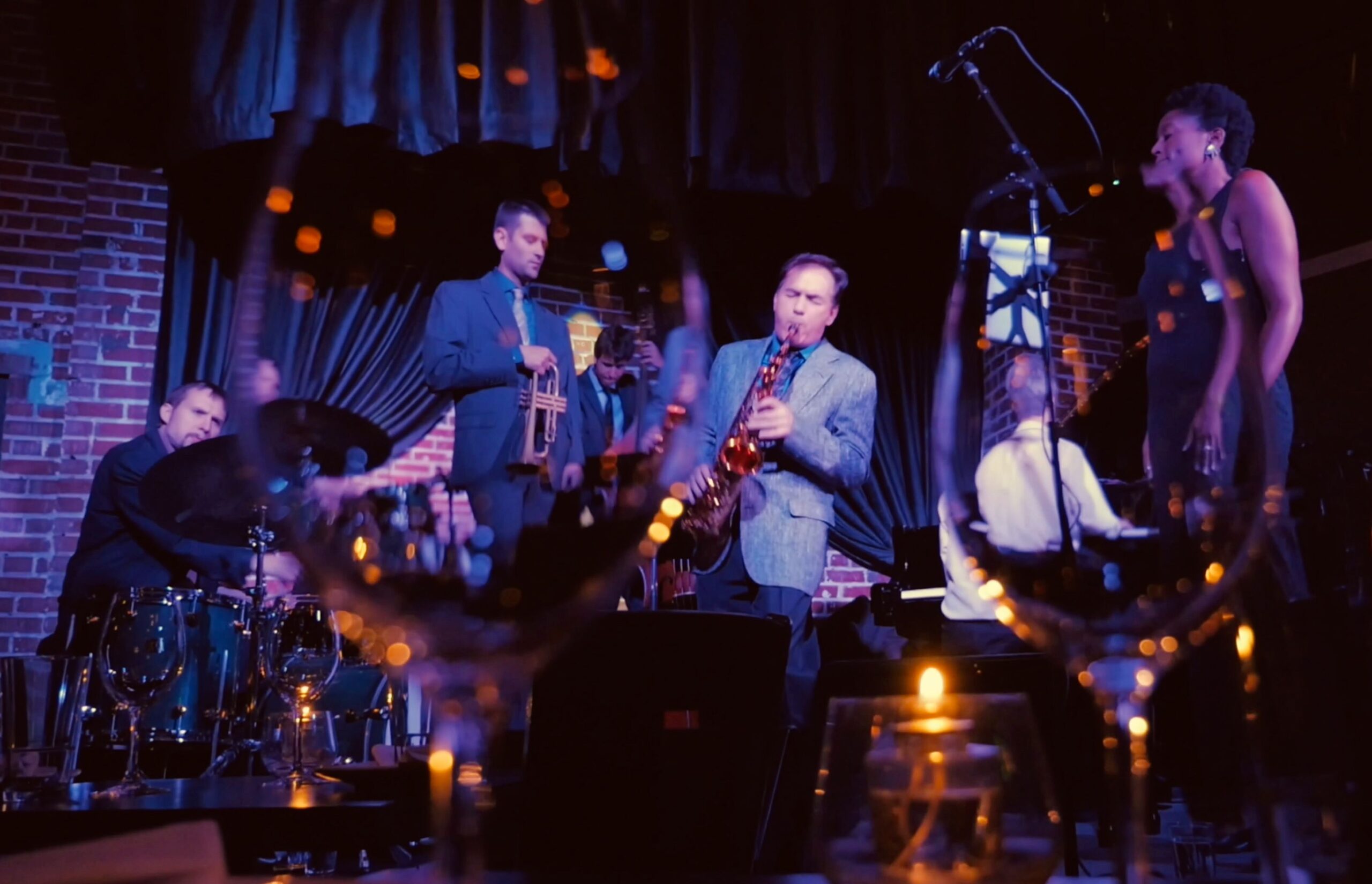(BMakin Film)
BMakin Film, 2021. Music Documentary. 91 min.
Grade: 2 out of 4
(Note: a one-hour version of this film has aired on PBS in Colorado. This review is for the feature-length version)
I am hardly the world’s biggest jazz fan, and it only seems right to say that upfront. If it invalidates my opinion of a documentary called JazzTown in your mind, so be it. But I can respect the craft it takes to have a near-encyclopedic knowledge of song standards, the ability to improvise with the other band members as if all are one, and in the case of singers, the need to stay perfectly on key. It’s a lot of work and skill, even if the final product isn’t necessarily to my taste.
But what even is jazz, anyway? That’s a question put ot a lot of interview subjects here, and while former governor John Hickenlooper dryly, squarely, amusingly responds, “Jazz is the polyrhythmic application of soul to life,” other answers are equally subjective. The overall impression given, though, is that at least as many practitioners of jazz might define it as a state of mind or an attitude, rather than a style of music heavy on tinkly piano, sax, and smoky vocals. One singer here performs with a full orchestra; another creates digital noise. Most of the output is what the average person might define as jazz, genre-wise, but certainly not all.
As a sky camera pans across Denver, and piano keys start to flutter, one is reminded of the intro to Mister Rogers’ Neighborhood. Would “It’s a Beautiful Day in the Neighborhood” count as jazz? That’s less the point than to suggest that the Mile-High City is a very specific jazz neighborhood, the town of the title. Director Ben Makinen, who cleverly dubs his production company Bmakin Film, is a veteran jazz drummer in the scene, and as he lays out in a written director’s statement onscreen – such things are usually reserved for the press kit – he wants his film to be a tribute to his mentors.
Most of the film follows a predictable pattern where in he talks to a musician a bit about their craft, we see them play a little, and then he moves on to the next one. All too many are followed with an onscreen year of death; it’s clear Makinen had a lot of footage of deceased musician pals he wanted to piece together. Most are a generation removed from the legends in the field, from Mahalia Jackson to Dizzy Gillespie, but back in their day, many of them played in those legendary bands at some point. And then Makinen played with them, making him one degree away from the heroes of the style.
This is all well and good for anyone who just wants to hear the music, but as a documentary film, it’s a lot of lather, rinse, repeat. Makinen varies up the types of video style in an attempt to make visual jazz, but they so pale in comparison to the HD Denver vistas (likely stock footage, but if he shot them in a helicopter, bravo) that they come across as varying degrees of cheap. Only in the last third of this 91-minute movie does it become what it ought to have been all along: a story of Denver’s jazz scene, how it happened, why it actually mattered, and where it looks to be going next. This happens shortly after we meet Ron Buckman, whose experiments with noise and nontraditional instruments feels more in the ballpark of Sonic Youth than Duke Ellington. He feels like an outlier here, and sadly is one of the many deceased subjects.
Once things get on topic, there’s a poignancy and parallelism to a lot of art these days. Jazz, like most other forms of self-expression, is becoming something only the independently wealthy can afford to do. It’s heavily by elites for elites in the latest generation, and losing the populist touch. Is there a cure? Many of those who talk suggest a return to basics – basics which, as we’ve already heard, nobody necessarily quite agrees upon.
Can I in good conscience suggest that you sit through an hour montage of lesser-known Denver jazz musicians so you can get the insightful final 30 minutes? Only if jazz is your thing already. Makinen has put together a fair enough family album of sorts for his friends and mentors in that circle, but I’d be more interested in the in-depth documentary about their history that he didn’t make. And perhaps that’s on me, but I do have to give this a grade somehow.

